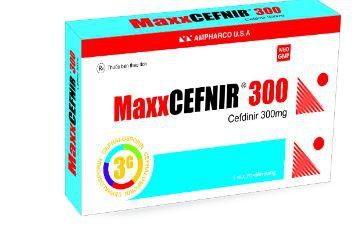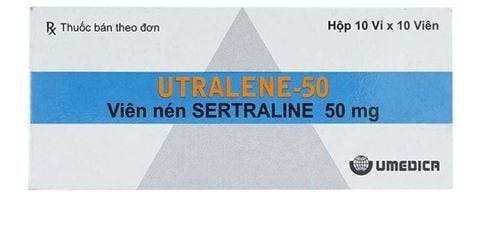This is an automatically translated article.
Acetic acid and hydrocortisone otic drugs combine the antibacterial effects of acetic acid and the anti-inflammatory effects of hydrocortisone. The drug is indicated in the treatment of ear infections caused by susceptible bacteria, reducing symptoms of itching, redness or swelling.
1. Uses of Acetic acid and Hydrocortisone otic
Acetic acid and hydrocortisone otic drugs combine the antibacterial effects of acetic acid and the anti-inflammatory effects of hydrocortisone. The drug is indicated in the treatment of ear infections caused by susceptible bacteria, reducing symptoms of itching, redness or swelling.
Acetic acid and hydrocortisone can also be used in some cases as prescribed by the doctor.
2. Dosage and how to use Acetic acid and Hydrocortisone otic
2.1. Dosage The dose of Acetic acid and hydrocortisone otic drugs depends on the patient's condition and ability to respond. The recommended dosage for ear drops in the treatment of ear canal infections is as follows:
Adults and children over 3 years of age: Instill 3-5 drops in the affected ear, repeat the dose after 4 – 6 hours in the first 24 hours, then 5 drops/time x 3 times/day; Children under 3 years old: Take the dose prescribed by the treating doctor. In the event that a dose is missed, the patient should take it as soon as possible when he remembers. If it is almost time for the missed dose, the patient can skip the missed dose and continue taking the medicine as usual.
2.2. How to use To use Acetic acid and hydrocortisone drugs effectively, patients should adhere to the following ways of using the drug:
The patient lies on the side of the affected ear upwards. Gently pull the earlobe up and back in adults (pull down and back for children) to help straighten the ear canal. Put the medicine into the ear canal, hold the position for 2 - 5 minutes to help the medicine flow to the bottom of the ear canal. The patient can use a sterile cotton plug placed in the ear canal to prevent medicine from leaking out. The doctor may also assign the patient to put drops on the cotton and 4-6 hours to keep it moist; Avoid touching the tip of the dropper to your ear, hand or any other object to reduce the risk of infection. After use, wipe the tip of the dropper with a clean tissue, close the cap of the medicine and store it in a cool, dry place; As for the dosage form, it is an ear drop that should only be used within 30 days of opening the cap. Hydrocortisone and acetic acid should also not be used in certain infections because of the risk of aggravation by non-susceptible organisms. Therefore, patients should only use the drug in treatment when prescribed by the treating doctor.
3. Acetic acid and Hydrocortisone side effects
Acetic acid and hydrocortisone can cause some less common side effects such as weakness, loss of appetite and weight loss in children. You may also experience itching, stinging, irritation, or burning of the ear. Side effects that are signs of an allergic reaction include rash, difficulty breathing, swelling of the face, lips, tongue or throat. In the event of an allergic reaction, the patient should discontinue use. medication and go to a medical facility as soon as possible for timely treatment.
4. Notes when using Acetic acid and hydrocortisone drugs
For any drug form of acetic acid and hydrocortisone, the patient also needs to stop using when the phenomenon of allergy, hypersensitivity occurs.
Inform the doctor in case the patient is allergic to any ingredient of the drug as well as to any drug or food, food, drink...
The ingredient hydocortisone in the drug belongs to the corticosteroid group, Therefore, it is not recommended to use in the treatment of children under 3 years of age.
Elderly: There is no change in drug absorption in the elderly. Therefore, no dose adjustment is required in this patient.
Pregnant women and lactating women: There are no studies to prove the safety of acetic acid and hydrocortisone drugs, so it is not recommended to use the drug in these subjects.
5. Acetic acid and hydrocortisone drug interactions
Acetic acid and hydocortisone drugs can interact with the following drugs: live Rotavirus vaccine, Desmopressin, abametapir, loxoprofen, aceclofenac, lumiracoxib, macimorelin, acemetacin, meloxicam, nadifloxacin, bemiparin, moxifloxacin, nabumetone,...
Use Concurrent use of Acetasol HC and the following medicines may increase the risk of side effects: Metocurine, Licorice, Alcuronium, Rifapentine, Primidone, Gallamine, Colestipol, Hexafluorenium...
Drug interactions with food and food Taking it can increase the risk of side effects and decrease the effectiveness of the medication. Therefore, the patient should consult the treating doctor about the use of the drug along with food and drink.
In addition to the above important information, to know more about Acetic acid and hydrocortisone, you can consult your doctor, pharmacist for appropriate indications.
Please dial HOTLINE for more information or register for an appointment HERE. Download MyVinmec app to make appointments faster and to manage your bookings easily.
Reference source: holevn.org - drugs.com












